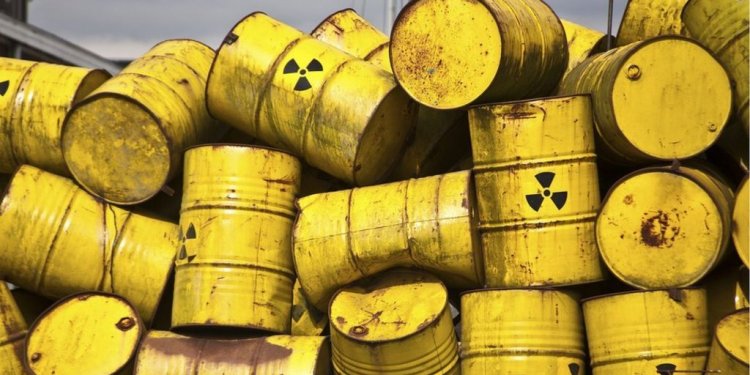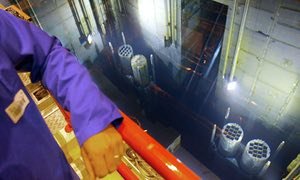
Radioactive Waste Disposal UK
 Radioactive nuclear waste on the way to being reprocessed at Sellafield. The site on the Cumbrian coast stores nuclear waste from several countries around the world. Photograph: Odd Andersen/AFP/Getty Images
Radioactive nuclear waste on the way to being reprocessed at Sellafield. The site on the Cumbrian coast stores nuclear waste from several countries around the world. Photograph: Odd Andersen/AFP/Getty Images
Radioactive Waste Management accepts social and political challenges must be overcome – but says government now has power to overrule local communities
Plans costing £4bn to identify and create a geological disposal site for the UK’s radioactive waste are being hindered by a “nuclear perception problem” say experts.
It is estimated that the lifetime cost of disposing of the radioactive waste accumulated to date will cost the taxpayer around £12bn, with £4bn estimated to be spent before the waste can be buried.
Surveys available to date indicate that 30% of the UK, excluding Scotland, could be geologically suitable for such a site.
But Alun Ellis, science and technology director of Radioactive Waste Management (RWM), the government-owned company asked to deliver a geological disposal unit, said that “the other half of the problem – the more difficult half – is how we overcome the social and political challenges.”
RWM is preparing to launch a public information campaign on the issue in September. A screening process to identify the most suitable areas in the UK for such a site will complete by 2017.
In April, a new law redefining radioactive waste sites as “nationally significant infrastructure projects” which central government therefore have the final say on, was passed in the final hours before parliament was disbanded for the election.
Ellis said: “For the vast majority of people, there is an immediate nuclear dread and a lack of familiarity with all things nuclear. The links to the nuclear bomb certainly don’t help and there’s no hiding the fact that the roots were part of the defence related programme, which very rapidly in the UK moved onto generating electricity. But people in nuclear communities understand the need for geological disposal and are much more amenable to having a discussion.”
The decades long search for a disposal site in the UK has stalled since Cumbria’s county council voted against a proposal in 2013, with the government last year offering local communities willing to consider the option up to £40m.

















